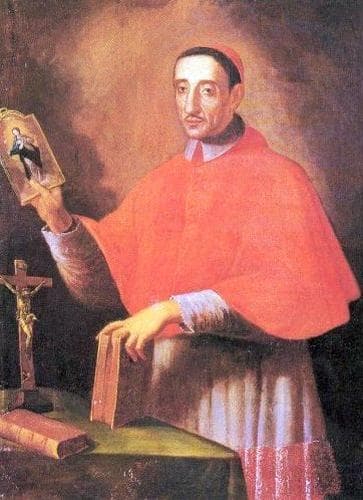Saint Joseph Mary Tomasi
Saint
Feast Day: January 1
Birth: September 12, 1649
Death: January 1, 1713
Biography
Saint Joseph Mary Tomasi, also known as Giuseppe Maria Tomasi di Lampedusa, was born on September 12, 1649, in Licata, Sicily, Italy. He was born into a wealthy Sicilian noble family as the son of the duke of Palermo, Italy, and Rosalia Traino. He came from a devout Catholic family, and when his parents' children grew up, both of them entered religious life while four of his sisters became nuns. In a selfless act of renunciation, Joseph decided to relinquish his inheritance and position in favor of his brother. Inspired by a deep calling to serve God, he joined the Theatines on March 24, 1665. His dedication and commitment to his vocation were evident from the start. Joseph pursued his studies diligently, first in philosophy in Messina, Ferrara, and Modena, Italy, and then in theology in Rome and Palermo, Italy. He displayed a remarkable aptitude for languages, mastering Greek, Ethiopic, Arabic, Syriac, Chaldaic, Hebrew, Italian, and Latin. His linguistic abilities would prove immensely valuable in his future scholarly pursuits. On December 25, 1673, Joseph was ordained as a priest, marking the beginning of his active ministry. He was stationed in Rome and appointed as the examiner of the clergy for Pope Innocent XII. During this time, he chose to embrace a life of solitude as a hermit, which earned him criticism from authorities who felt he was overly scrupulous in his piety. While living as a hermit, Joseph dedicated himself to studying and writing extensively on the liturgy. Under the pen name Joseph Marie Carus, he published several titles that greatly contributed to the understanding and promotion of the Church's liturgical practices. Joseph's wisdom and spiritual insight made him a sought-after confessor, and he served as the confessor to Cardinal Alboni. When Alboni was elected Pope, he initially hesitated to accept the position. However, Joseph advised him that it would be a mortal sin to refuse the throne. Heeding Joseph's counsel, Albani became Pope Clement XI. Joseph's expertise in theology led to appointments as a consultor for various congregations such as the Theatines, the Congregation of Rites, and the Congregation of Indulgences and Sacred Relics. Despite his own reservations about his worthiness, he was ultimately elevated to the position of cardinal-priest by Pope Clement XI on May 18, 1712. As a cardinal, Joseph continued his prolific writing career, producing numerous works on theology, Scripture, and patristics. His deep knowledge, humility, and commitment to reforming the Church were widely recognized and respected. Despite his esteemed position and scholarly achievements, Joseph never lost sight of the importance of teaching catechism to children. He found joy and fulfillment in imparting the faith to the young, contributing to their spiritual formation. Notably, Saint Joseph Mary Tomasi is said to have predicted the date of his own death. On January 1, 1713, he passed away peacefully at his home next to the church of San Lorenzo in Panisperna, Rome, Italy, due to natural causes. His mortal remains were initially buried in the church but were later transferred to the Theatine church of San Andrea della Valle, Rome, and interred under a side altar in 1971. Remarkably, his body was found to be incorrupt, a sign of special holiness. Pope Pius VII beatified Saint Joseph Mary Tomasi on September 29, 1803. Nearly two centuries later, on October 12, 1986, Pope John Paul II canonized him, acknowledging his exceptional sanctity and significant contributions to the Church. Saint Joseph Mary Tomasi is recognized as a patron saint of liturgy, owing to his profound knowledge and profound impact on the Church's liturgical practices. His life serves as an inspiration for all who seek to deepen their faith, humbly serve others, and tirelessly pursue holiness.
